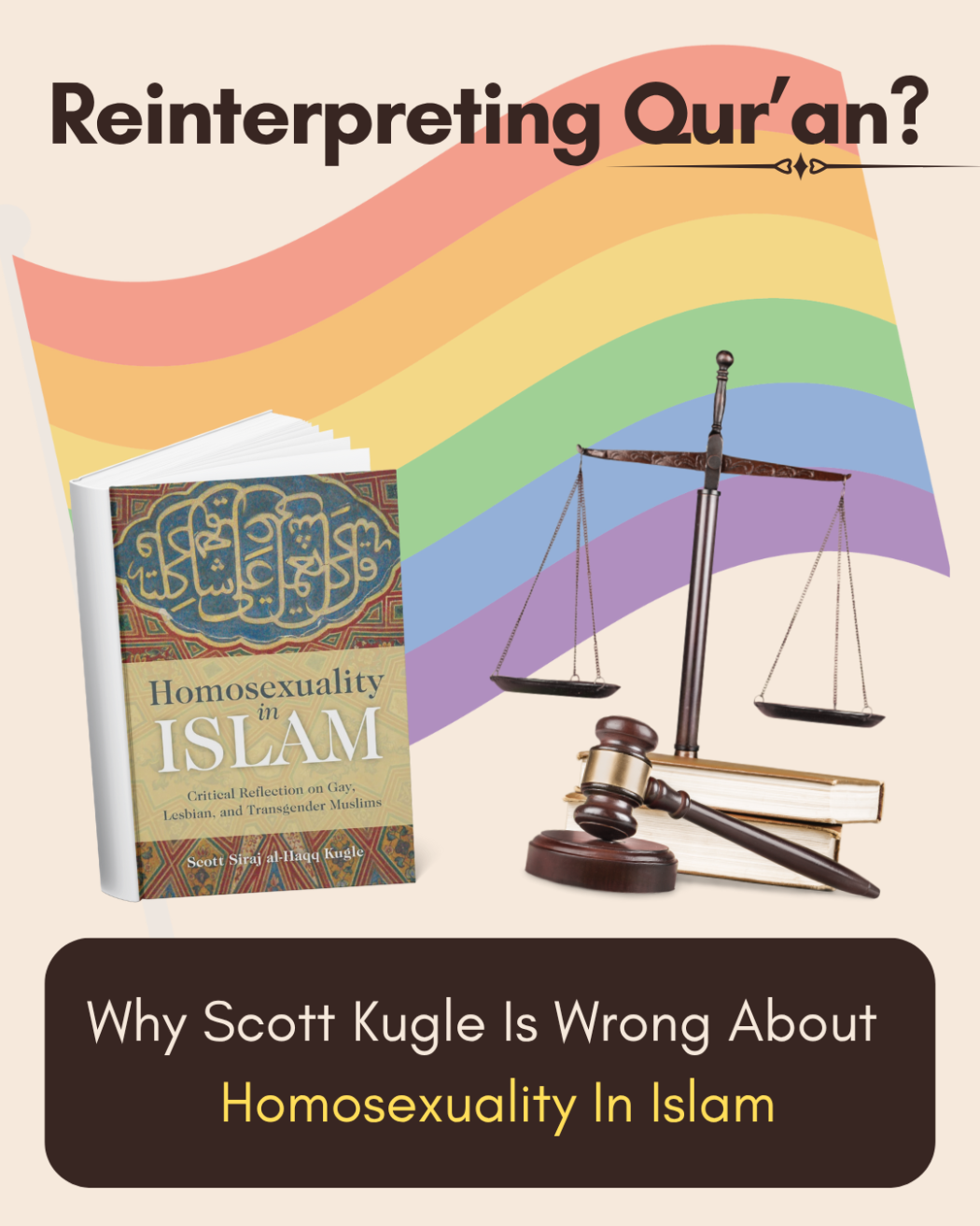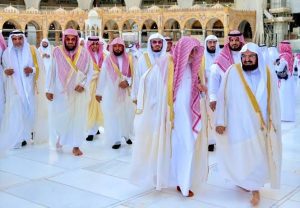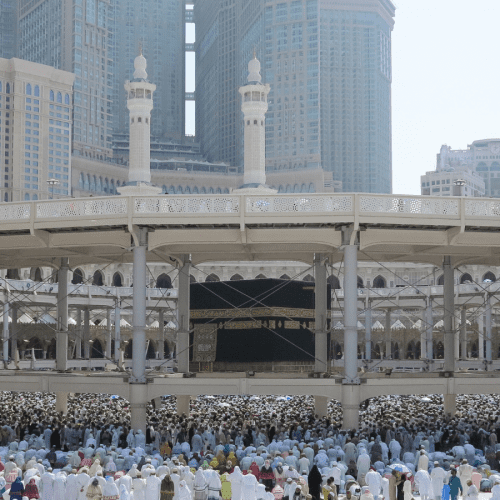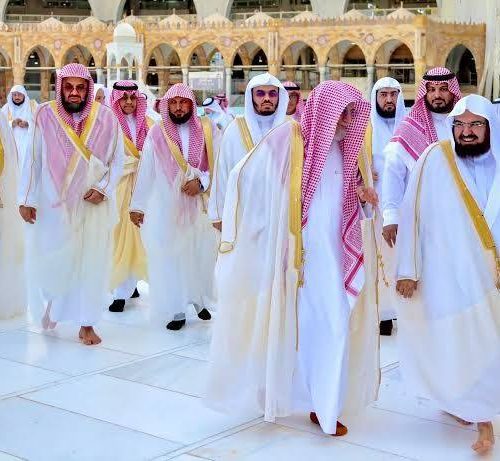What is obligatory regarding the texts of the Qur’an and Sunnah in relation to the rights of Allah over people.
All praise is due to Allah; we praise Him; seek His help and ask His forgiveness. We seek refuge in Allah from the evil of our souls and our deeds, for whomever Allah has guided, none can lead astray, and whomever Allah has allowed to go astray, none can guide. I bear witness that there is no God worthy of worship besides Allah, who is alone without a partner, and I bear witness that Muhammad is His slave and Messenger.
﷽
The most important duty of every human being is to understand the rights of their Creator. Meeting one’s obligations towards Allah fulfills the ultimate purpose for which people were created. Therefore, the rights of Allah take precedence over the rights of all others, including parents, spouses, children, siblings, rulers, teachers, and everyone else.
”O mankind! Worship your Lord (Allâh), Who created you and those who were before you so that you may become Al-Muttaqûn (the pious). Who has made the earth a resting place for you, and the sky as a canopy, and sent down water (rain) from the sky and brought forth therewith fruits as a provision for you. Then do not set up rivals unto Allâh (in worship) while you know (that He Alone has the right to be worshipped).” [Surah al Baqara : 21, 22]
Yā ayyuhā al-nāsu uʿbudū rabbakumu alladhī khalaqakum wa alladhīna min qablikum laʿallakum tattaqūn.
Alladhī jaʿala lakumu al-arḍa firāshan wa al-samāʾa bināʾan wa anzala mina al-samāʾi māʾan fa-akhraja bihi mina al-thamarāti rizqan lakum. Fa-lā tajʿalū lillāhi andādan wa antum taʿlamūn.
يَـٰٓأَيُّہَا ٱلنَّاسُ ٱعۡبُدُواْ رَبَّكُمُ ٱلَّذِى خَلَقَكُمۡ وَٱلَّذِينَ مِن قَبۡلِكُمۡ لَعَلَّكُمۡ تَتَّقُونَ (٢١)
ٱلَّذِى جَعَلَ لَكُمُ ٱلۡأَرۡضَ فِرَٰشً۬ا وَٱلسَّمَآءَ بِنَآءً۬ وَأَنزَلَ مِنَ ٱلسَّمَآءِ مَآءً۬ فَأَخۡرَجَ بِهِۦ مِنَ ٱلثَّمَرَٲتِ رِزۡقً۬ا لَّكُمۡۖ فَلَا تَجۡعَلُواْ لِلَّهِ أَندَادً۬ا وَأَنتُمۡ تَعۡلَمُونَ (٢٢)
Ibn Katheer (رضي الله عنه) commented on the verse that may be summed up as follows: ” Allah starts the verse by explaining the oneness of His divinity, because He (سبحانه وتعالى) is the bestower of blessings upon His slaves, both apparent and hidden. He is the Creator, the Provider, the Sovereign of this world and his inhabitants, Who provides for them. Thus He Alone deserves to be worshipped, with none other associated with Him. Hence He says: ”Then do not set up rivals unto Allâh (in worship) while you know (that He Alone has the right to be worshipped).” [Surah al Baqara : 22]”
”And Allah ﷻ says: And I (Allâh) created not the jinn and mankind except that they should worship Me (Alone).” [Surah adh-Dhariyat : 56]
Wa mā khalaqtu al-jinna wa al-insa illā liyaʿbudūn.
وَمَا خَلَقۡتُ ٱلۡجِنَّ وَٱلۡإِنسَ إِلَّا لِيَعۡبُدُونِ (٥٦)
Narrated by Mu`adh: ”I was a companion rider of the Prophet (ﷺ) on a donkey called ‘Ufair. The Prophet (ﷺ) asked, “O Mu`adh! Do you know what Allah’s right on His slaves is, and what the right of His slaves on Him is?” I replied, “Allah and His Apostle know better.” He said, “Allah’s right on His slaves is that they should worship Him (Alone) and should not worship any besides Him. And slave’s right on Allah is that He should not punish him who worships none besides Him.” I said, “O Allah’s Messenger (ﷺ)! Should I not inform the people of this good news?” He said, “Do not inform them of it, lest they should depend on it (absolutely).” [Sahih al-Bukhari Vol. 4, Book 52, Hadith 108]
The root meaning of the word ibadah (worship) is submission and humility. In Arabic language the phrase tareeq mu’abbad refers to a road that has been made smooth (i.e. paved), and the phrase ba’eer mu’abbad refers to a camel that is amendable, i.e. a person that is flexible and open to improvement or guidance. He has humility or a willingness to change, especially when associated with traits like perseverance (which camels are often symbolic of in literature and proverbs).
Shaykh al-Islam Ibn Taymiyyah (رضي الله عنه) said : ”A comprehensive noun (ibadah) which includes all that Allah loves and is pleased with, with of words and actions, both hidden and apparent.
Summary of the The Rights of Allah (ﷻ) over people:
1.Tawheed i.e. believing in Him, as He (سبحانه وتعالى) says:
”Believe in Allâh and His Messenger (ﷺ), and spend of that whereof He has made you trustees. And such of you as believe and spend (in Allâh’s Way), theirs will be a great reward.” [Surah al Hadid : 7]
Āminū billāhi wa-rasūlihi wa-anfiqu mimmā jaʿalakum mustakhlafīna fīhi fa-alladhīna āmanū minkum wa-anfaqū lahum ajrun kabīr
ءَامِنُواْ بِٱللَّهِ وَرَسُولِهِۦ وَأَنفِقُواْ مِمَّا جَعَلَكُم مُّسۡتَخۡلَفِينَ فِيهِۖ فَٱلَّذِينَ ءَامَنُواْ مِنكُمۡ وَأَنفَقُواْ لَهُمۡ أَجۡرٌ۬ كَبِيرٌ۬ (٧)
Believing that Allah is One in His Essence, His names, His attributes and His deeds; that Allah alone is the Lord, the Sovereign, the Controller, the Creator, the Provider, in Whose hand is the absolute Dominion and He is Able to do all things:
”Blessed is He in Whose Hand is the dominion, and He is Able to do all things.” [Surah al Mulk : 1]
Abāraka alladhī biyadihi al-mulku wa-huwa ʿalā kulli shay’in qadīr
تَبَـٰرَكَ ٱلَّذِى بِيَدِهِ ٱلۡمُلۡكُ وَهُوَ عَلَىٰ كُلِّ شَىۡءٍ۬ قَدِيرٌ (١)
2.‘Ibaadah (worship), i.e. worshipping Allah alone because He is our Lord, Creator and Provider. So all kinds of worship should be devoted to Him alone, such as du’aa’ (supplication), dhikr (remembering Allah), seeking help, humbling oneself, submitting, hope and fear, vows, sacrifices, and so on. Allah (ﷻ) says:
”Worship Allâh and join none with Him (in worship)” [Surah an Nisaa : 36]
ʿUbudū Allāha wa lā tushrikū bihi shay’ā.
وَٱعۡبُدُواْ ٱللَّهَ وَلَا تُشۡرِكُواْ بِهِۦ شَيۡـًٔ۬اۖ (٣٦)
3. Believing in His names and attributes, as narrated in the Qur’an and Sunnah, and understood by the righteous early generations (the salaf). This is because Allah knows better about His Essence, His names and His attributes than anyone else. It essential to believe that there is nothing like unto Allah, as He (ﷻ) says:
”but they will never encompass anything of His Knowledge.” [Surah Ta-Ha : 110]
Wa lā yuḥīṭūna bihi ‘ilman
وَلَا يُحِيطُونَ بِهِۦ عِلۡمً۬ا (١١٠)
”There is nothing like Him, and He is the All-Hearer, the All-Seer.” [Ash Shura : 11]
Laysa kamithlihi shay’un wa huwa as-Samee’u al-Baseer
لَيۡسَ كَمِثۡلِهِۦ شَىۡءٌ۬ۖ وَهُوَ ٱلسَّمِيعُ ٱلۡبَصِيرُ (١١)
4. Shukr (giving thanks and gratitude), for Allah is the One Who bestows favours and blessings upon all of creation, so they have to show their gratitude for these blessings by speech, heart and action; by praising Allah and using these blessings to obey Him and in ways that Allah has permitted:
”Therefore remember Me (by praying, glorifying,). I will remember you, and be grateful to Me (for My countless Favours on you) and never be ungrateful to Me.” [Surah al Baqarah : 152]
Fazkurūnī azkurkum washkurū lī walā takfurūnī.
فَٱذۡكُرُونِىٓ أَذۡكُرۡكُمۡ وَٱشۡڪُرُواْ لِى وَلَا تَكۡفُرُونِ (١٥٢)
The Bottom Line
Fulfilling the rights of Allah (ﷻ) is the primary duty of every human being in order to fulfill their purpose in life. These rights include believing in His oneness, worshipping Him alone, following His commands, knowing His names and attributes, and being grateful for His blessings as outlined in the Qur’an and Sunnah.
Bibliography
Sharh Al-Aqeedat-il-Wasitiyah by Ibn Taymiyyah, Dar us Salam Publications
Explanation to the Beautiful and Perfect Names of Allah by Abdu-r-Rahman Nasir As-Sa'di, Daar us Sunnah Publishers
Tarbiyyah Islamiyah by Islamic Education by Zad Academy
Interpretation of the Meaning of the Noble Qur’an in the English Language by Dr. Muhammad Muhsin Khan | Dr. Muhammad Taqi-ud-Din Al-Hilal




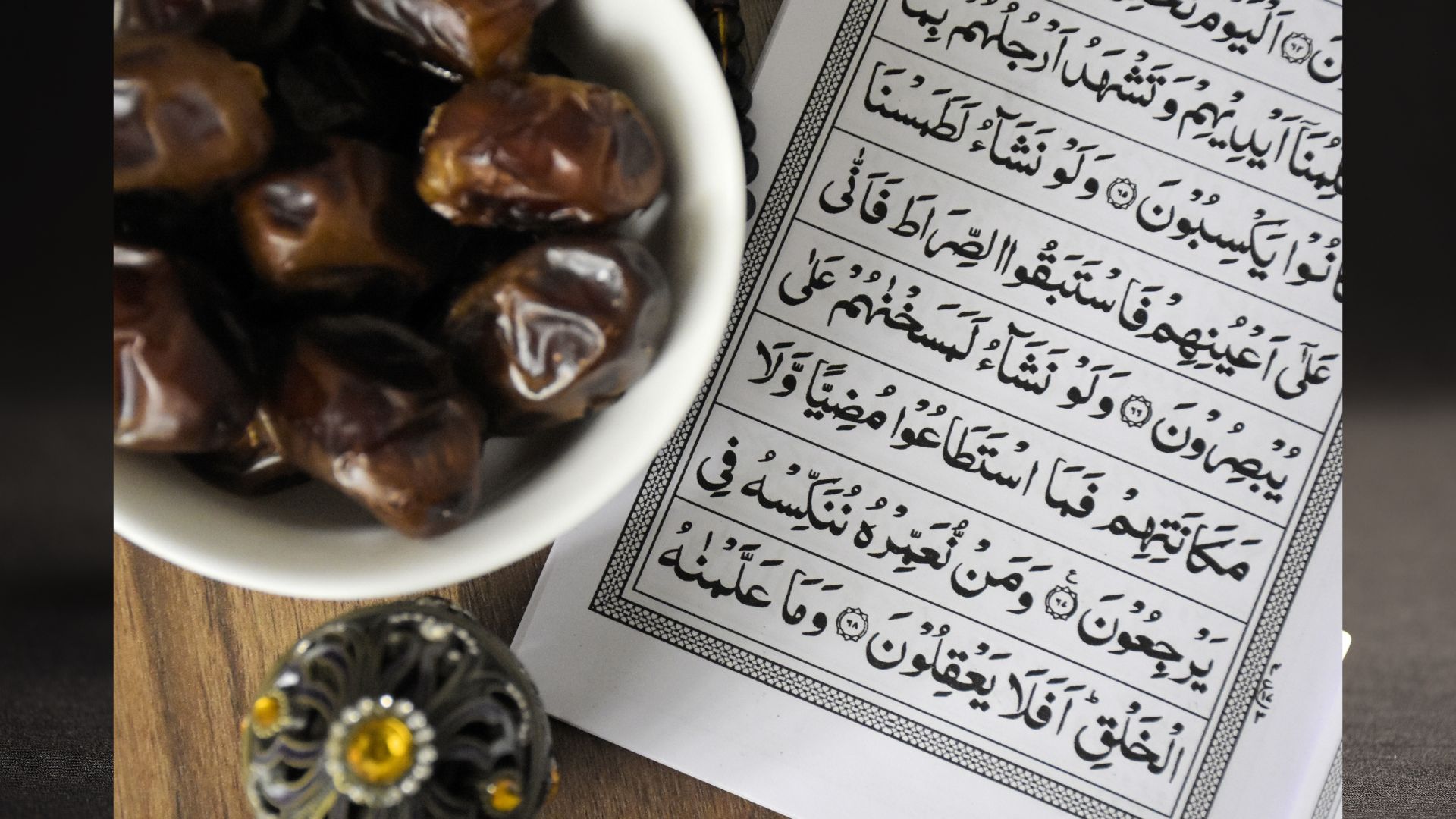



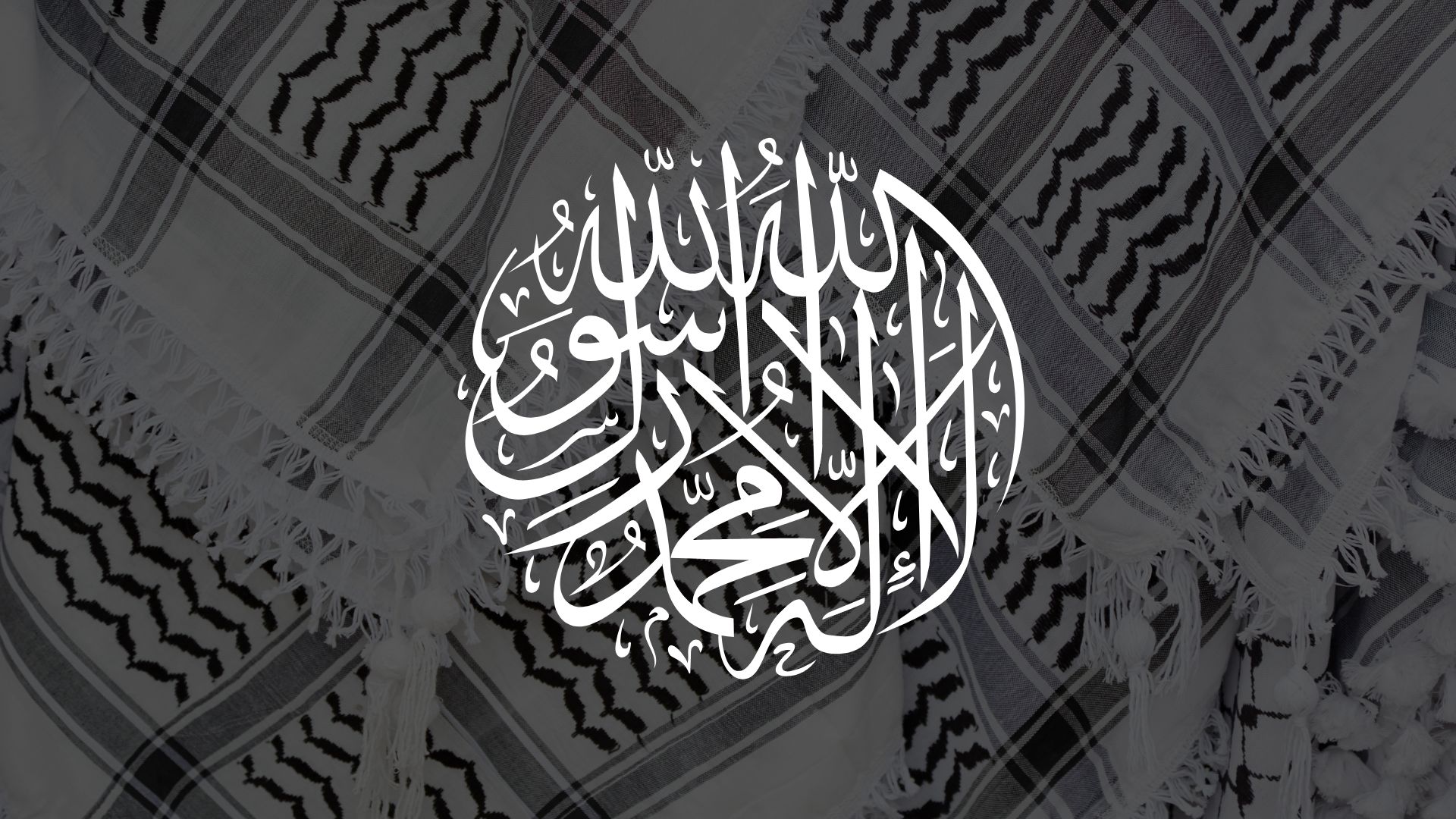

 Allah’s Names and Attributes: Main Rules 1/4
Allah’s Names and Attributes: Main Rules 1/4 How to Honour Allah and Benefit from it
How to Honour Allah and Benefit from it